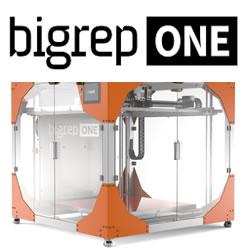Shapeways’ Digital Manufacturing Boosts Supply Chain Resiliency
Localization, Customization and 3D Printing Innovation Close Critical Supply Chain Gaps
New York, NY - April 13, 2021 - Shapeways, a leader in powering digital manufacturing, continues to disrupt the traditional manufacturing market through end-to-end digitization and automated workflows that lower manufacturing barriers, alleviate critical supply chain bottlenecks and speed delivery of quality products worldwide. The company's purpose-built software, proven production capabilities and global network of certified printer, materials and manufacturing partners are transforming manufacturing while boosting supply chain resiliency.
Five Ways Digital Manufacturing Elevates Supply Chain Resiliency
1. Accelerate production without massive manufacturing investments or delays
Digital manufacturing doesn't require deployment of massive, global supply chains and large-scale manufacturing facilities to achieve economies of scale. Companies also can avoid the high costs of sourcing, procuring and building expensive tools, fixtures and molds associated with traditional manufacturing.
In contrast, digital manufacturing relies on software-driven processes to automate manufacturing workflows that transform digital designs into physical products in days, not months. This faster, more efficient and cost-effective approach is quickly gaining traction over traditional manufacturing, which is characterized by slow, costly and cumbersome manual methods.
2. Fulfill product needs just-in-time while eliminating inventory stockpiles
The days of maintaining huge warehouses stocked with physical inventories are coming to an end, thanks to the agility with which digital manufacturing can make products on-demand for just-in-time delivery. Once inventory costs exceed the price of on-demand manufacturing, 3D printing becomes a much preferred and highly economical option.
The value of digital manufacturing increases exponentially when dealing with slow-moving inventory or end-of-life products with low turnover rates. It makes little sense to maintain supply chains for these items, especially when replacement parts can be produced digitally and delivered as needed.
3. Localize production for faster, efficient deliveries of production parts
Mainstream manufacturers have long touted their ability to build huge global supply chains with millions of components and parts from countless suppliers around the world. Too often, however, these behemoth supply organizations are bogged down by inefficient, manual sourcing and procurement methods. There are numerous issues with capacity, logistics and carriers as well as customs channels being clogged, most notably in the UK and India. This could continue to be a larger issue as time goes by.
Alternatively, digital manufacturing is ideally suited for localized production, leveraging a distributed network of preferred partners to reduce the distance between production facilities and end-customers. This distributed, digital manufacturing model is equally adept at alleviating local capacity constraints, as demonstrated by the speed at which Shapeways responded to PPE shortages during COVID-19. The ability to switch between suppliers and production partners as production needs and delivery deadlines dictate is another major supply chain benefit facilitated by digital manufacturing.
4. Support increasing needs for product personalization and customization
Traditional supply chains have been designed to orchestrate mass production of huge volumes of mostly static product designs. As a result, they fall short of keeping pace with ever-increasing demands for product personalization and customization. Digital manufacturing, however, is designed specifically for precise and efficient production of made-to-order products.
5. End-to-end automation and workflows improve supply chain agility, flexibility
While digital manufacturing is poised to improve today's supply chains, it can present a high barrier to entry for organizations that have been slow to digitize core business and manufacturing processes. Shapeways is focused on simplifying digital manufacturing complexities while boosting supply chain resiliency by easing the shift to digital manufacturing. This is accomplished through an integrated set of capabilities, including intuitive material selection, instant quoting, service level options, automated and personalized feedback from design through to printing, post-processing, complete quality checks, fulfillment and distribution.
About Shapeways
Shapeways makes world-class, on-demand manufacturing more accessible to everyone through automation, innovation and digitization. The company's purpose-built software, wide selection of materials and technologies, and global supply chain lower manufacturing barriers and speed delivery of quality products. Shapeways' digital manufacturing services have empowered more than one million customers worldwide to produce more than 20 million parts using 11 different technologies and 90 different materials and finishes. Headquartered in New York City, Shapeways has ISO 9001-compliant manufacturing facilities in Long Island City, N.Y., and Eindhoven, the Netherlands.
Featured Product

